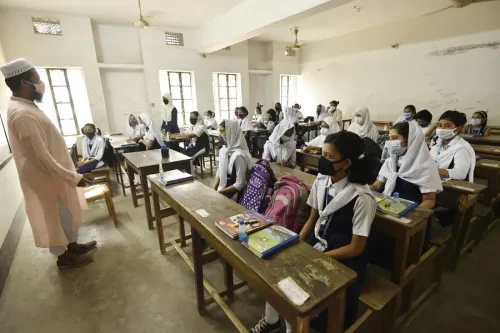Severe Cold Wave Conditions Sweep Across Bangladesh Once More

Dhaka, Jan 9 (NationPress) Severe cold wave conditions have once again swept across the majority of Bangladesh.
The most recent weather report from the Bangladesh Meteorological Department (BMD) indicates a significant drop in temperatures across the country, commencing at 9:00 a.m. local time on Wednesday.
The BMD also mentioned that the feeling of cold may heighten during the day due to thick fog.
On Wednesday, the Jashore district, located approximately 164 km from the capital, Dhaka, recorded the lowest temperature in the nation at 12.8 degrees Celsius.
In Dhaka, the minimum temperature was noted at 16.3 degrees Celsius.
In recent days, temperatures in Dhaka have been rising by 1 to 2 degrees daily, leading to a slight reduction in the sensation of cold during daylight hours.
The sky above the capital and many regions of the country remained overcast since Wednesday morning, with vehicles in Dhaka operating with headlights on during the day, as reported by Xinhua.
The BMD has also cautioned that dense fog could temporarily hinder air travel, internal river transportation, and road traffic.
Reports state that sunlight has been completely absent in northern districts due to the dense fog, adversely affecting vulnerable populations.
In the face of the biting cold, homeless individuals in Dhaka are struggling significantly. Many poor residents have been observed warming themselves by burning wood. The prevalence of illness is notably high among these vulnerable groups.
In Bangladesh, individuals from lower-income backgrounds, particularly laborers, are disproportionately impacted by the cold weather as they often have inadequate clothing. Additionally, children and the elderly are particularly susceptible to diseases such as pneumonia.
A local study released last year revealed that there are, on average, at least 281 deaths annually attributed to cold wave conditions in Bangladesh.
January has been reported to witness the highest number of such fatalities, followed by December, according to the findings.









